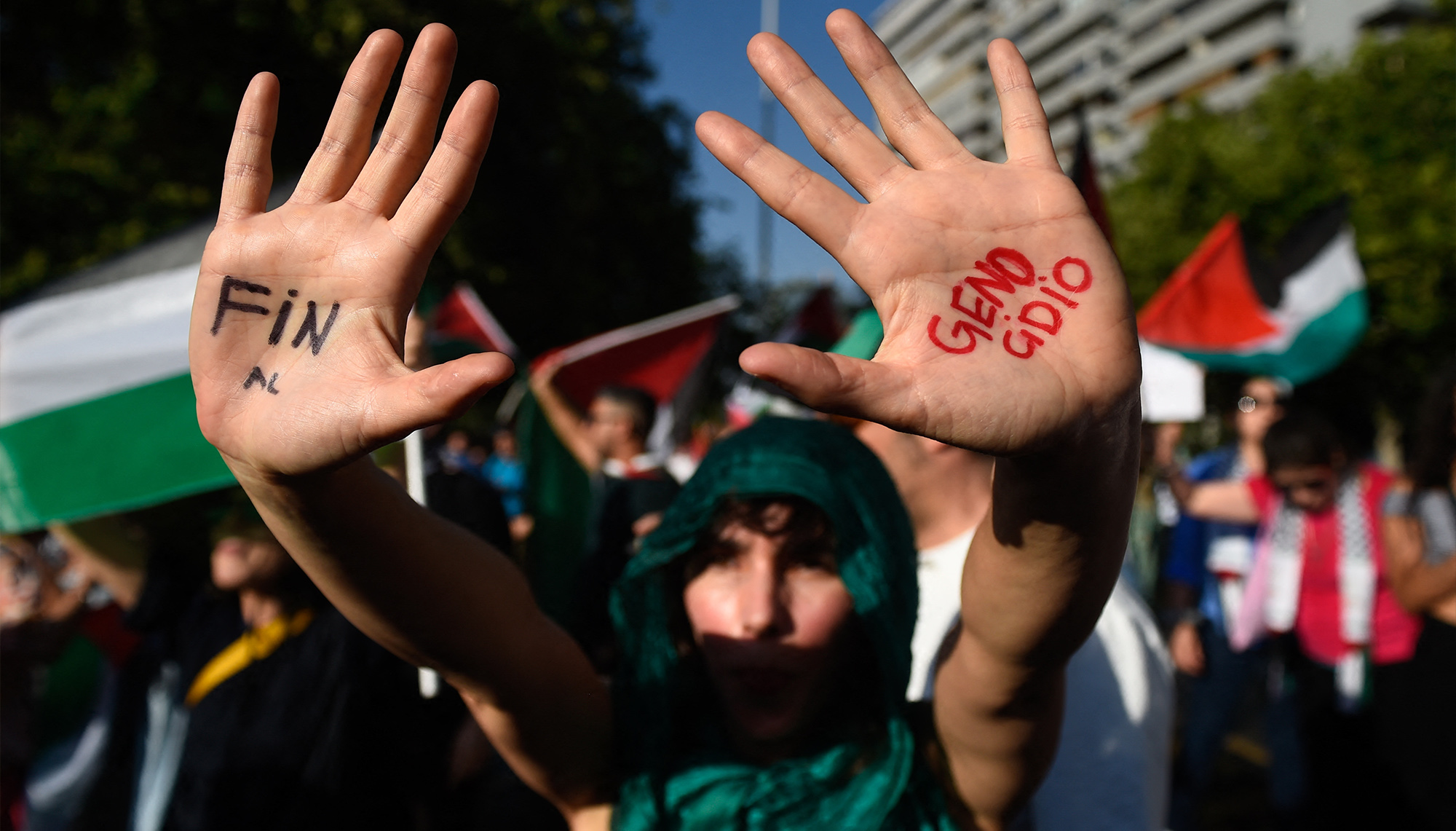By Nadeem Nashef
(This article first appeared on 7iber, on 12 June 2016. It was translated and published by Middle East Monitor).
On 15 November, the Israeli Special Forces stormed the home of 15-year-old Tamara Abu Laban in occupied Jerusalem and arrested her, along with her father, for questioning. He was referred to trial and Tamara remained detained for five days and was fined $4,000. All of this because Tamara had posted “forgive me” on Facebook.
This post isn’t particularly dramatic in any other context, and probably wouldn’t get any likes or comments on social media, but after the most recent Palestinian popular uprising, and given the “Facebook arrests” campaign launched by the Israeli occupation against the Palestinians, it cold be misconstrued by the occupation as a desire to “commit violent acts”.
Tamara’s story is just one of dozens of similar stories listed and observed in the #Palestine2015 report. This new report prepared by 7amleh-Arab Centre for Social Media Advancement showcases and analyses current events and issues addressed by social media in Palestinian circles.
The report highlights the increased number of arrests based on posts on social networking sites since the beginning of the Palestinian popular uprising last November. According to the Palestinian Prisoners’ Society, over 150 Palestinian men and women were arrested between November 2015 and February 2016 in the context of “Facebook arrests”.
The Israeli war on the Gaza Strip in late 2008 was the turning point in the role of the Israeli social media’s official role, as well as the electronic war between the Palestinians and Israelis. The Israeli army established a military unit specializing in social media, and on 29 December 2008, they established their own YouTube channel. On the back of this, all of the Israeli official institutions formed their own effective social media units through which the Israeli narrative is broadcasted and the Zionist state is defended. The Israeli army also systematically recruits academic institutions and university students to launch electronic wars and media campaigns that reinforce the Zionist narrative on social media sites by means of comments and chats. In addition to this, government institutions train these students to be “ambassadors” for the Israeli state on social networking sites, especially when these students speak more than one language. Israel gives them scholarships, financial grants, and other incentives that encourage them to serve the state.
It has become increasingly clear how involved the Israeli companies were in supplying security and military institutions with programs that monitor Palestinians and Arabs.
With the outbreak of the latest uprising, Deputy Foreign Ministry Tzipi Hotovely formed a new social media unit comprised mainly from those graduating from Unit 8200, the Israeli cyber spy agency, which monitors key “inciting” words on social media. They also file complaints and reports and request the removal of reports and posts that contradict Israel’s interests and visions. They do so by means of direct contact with senior officials in major social networking companies and they post Israeli propaganda.
In 2015, there was an active Israeli campaign which targeted the Palestinian electronic content. The Israeli government pressured a number of large companies such as Facebook and Google to remove content it claimed to be “inciting violence”. As a result of these pressures to remove the Palestinian content from the social media scene, Hamas’s YouTube channel was removed based on the request of the Israeli Foreign Ministry. In November 2015, the Israeli Foreign Ministry issued a press statement after the Palestinian popular uprising, stating that its representatives met with YouTube’s executive director and that they decided to cooperate to develop surveillance mechanisms and control the content posted on the website. Google denied this statement days after it was issued, saying that it will continue to rely on its own terms and conditions of use.
Israeli Justice Minister Ayelet Shaked made a statement a few days ago in a press conference in Hungary regarding incitement and anti-Semitism on the Internet. She said that over 70 per cent of the requests to remove content submitted by Israel against users who are mostly Palestinian are accepted immediately.
Unit 8200 focuses on military cyber spying, but many press reports have mentioned its association with the establishment of Israeli IT companies. These reports have revealed that the unit’s alumni founded the most popular IT companies such as Check Point, CyberReason, ICQ, Palo Alto Networks, indeni, NICE, AudioCodes, Gilat, Leadspace, EZchip, Onavo, Singular and CyberArk.
With the passing of time, it has become increasingly clear how involved the Israeli companies were in supplying security and military institutions with programs that monitor Palestinians and Arabs, as well as their conversations on various social networking sites. For example, it is a well-known fact that Israeli companies, such as IntuView, Kapow, and Buzzilla, which specialize in monitoring the Internet and social networking sites, which usually work to monitor conversations regarding trademarks, provide their services to the Israeli army. These companies monitor specific keywords that appear repeatedly, according to the statements made by the heads of these companies. Such censorship on the content of the social networking sites is what allowed Israel to arrest Tamara Abu Laban and dozens of others.
Another example of the arrests based on posts on social media is the arrest of young poet, Dareen Tatour, who was arrested by the Israeli authorities on 2 November on charges of inciting violence and supporting terrorist groups on Facebook. These charges were based on her posting pictures and videos of Palestinian martyrs accompanied by her poems. Dareen remained detained for three months before she was put on house arrest, her trial is currently ongoing.
In short, the Israeli state has recruited all of its state, trade, security and military institutions to spread the Zionist narrative across the world and to prevent any attempts by the Palestinians to express themselves. The Israeli policy is based on monitoring the Palestinian content in order to arrest Palestinians and intimidate them, in order to deter them from participating. They also strive to put continuous pressure on international social media platforms to remove any posts that do not suit the Israeli policies and politicians. They take advantage of the collusion of “hi-tech” companies with the Israeli occupation by means of their direct, effective and open cooperation or by means of international platforms that provide cooperation behind the scenes.
After the arrests and prosecutions resulting from such cooperations , it has become certain that the large social media platforms are subject to Israel’s demands and will implement Israel’s policies. This means that the companies also go along with Israel’s definition of inciteful content on the Internet in a manner allowing Israel to define what’s legal and what’s illegal and then should be removed.







